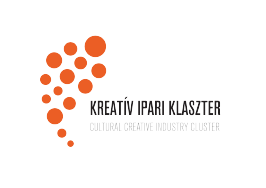A project is a process....
A project is any work carried out:
• in order to achieve a goal
• over a limited period of time
• at well-defined costs.
preparation of the project
implementation/management
identification of project tasks
identification of potential problems
setting goals and requirements (general and specific goals)
analysis of the project problem
defining one’s project principles
your own work and the standards of work in my organisation
Project planning includes:
1. planning your actions
2. planning the use of resources
3. planning requirements (what do you need to plan + put your pans into action) and additionally:
- structure
- standards and procedures, including: materials and production technologies, and documentation of individual project stages.
Human resources in projects:
creating the project team
contractors and subcontractors
division of work
The final stage of project comprises:
identification of the problem
formulating the problem
analysis of the actual state of affairs
conclusions from the analysis
project principles
alternative solutions
verification
final solution
verbal and visual presentation, also prototype presentation if possible
verification
The old project managers’ saying goes:
You have always too little time and too much work.
The fundamentals of project management (for managers and project directors)
1. Never lose your realistic vision
You need to base your ideas and visions on a plan that can be adhered to and is implementable
2. Learn to say no.
3. Plan effectively
Always use disciplined and structured approach towards planning, promote realism, effective communication and relations and properly shape the expectations of all people involved in the project.
4. People are the most important!
Manage your relationships with partners and clients. They are the most critical element of any project (as they will be using your products and/or services) and they are the most difficult to be managed.
Develop good communication within the team.
5. You shape the expectations.
Try to manage risks, problems and changers (they always appear) in an effective manner,
6. The only thing that is certain in a project is the lack of certainty!
Try to accept uncertainty and recognise it at any stage.
A project is a dynamic process.
You may always expect changes and you need to be prepared.
7. Objectivity above all.
Always rely on facts, not on subjective feelings. This will help you avoid unnecessary, stressful, unproductive conflicts. However, do not switch off your intuition and gut instinct. Sometimes this is all you need to decide whether something feels right
7. Each project is different.
No matter how experienced you are, each and every project will have its own peculiarities. Be aware of this and keep an open mind to avoid getting stuck in certain ways. This will decrease the quality of your project management and, by default, the quality of your product and/or services.
Video library
How to gain control of your free time | Laura Vanderkam
The Art of Stress-Free Productivity: David Allen at TEDxClaremontColleges
"Don't manage time, manage focus" | Savinda Ranathunga | TEDxThammasatU
The Future of Managing Projects | Mark Lomas | TEDxWestIslandSchool
The art of doing twice as much in half the time | Jeff Sutherland | TEDxAix
Steve Jobs talks about managing people
How to Learn Anything... Fast - Josh Kaufman
Can You Make Yourself Smarter?
Oliver James on What Makes Us Who We Are
Countries for winners; countries for losers












